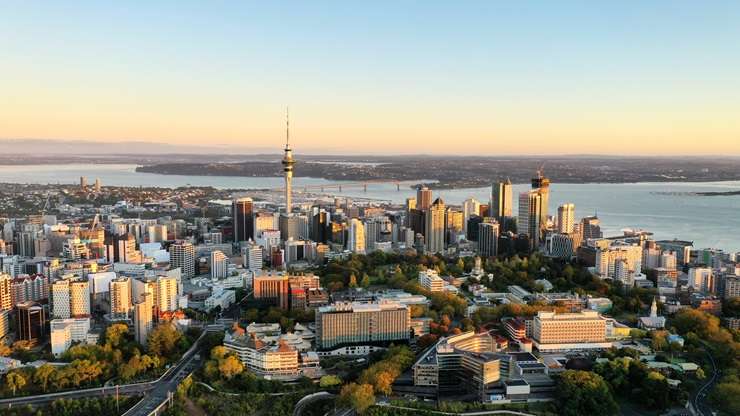ANALYSIS: The housing market has come a long way since the start of the year, when prices were still in decline and sales and listings volumes were at low levels.
The nationwide median house price, according the Real Estate Institute of New Zealand figures, has in the 10 months to the end of October grown almost 4%, with much of the lift coming after April.
Separate figures from OneRoof show the nationwide average property value has risen 2.57% since bottoming out in July. Other measures show a similar trajectory – the downturn is well and truly over and prices are steadily climbing back to peak levels, although for many parts of the country that’s a long way off.
Start your property search
How much then will house prices rise in 2024? You can get a helpful steer on this by looking at the major banks forecasts.
I looked at the most recent forecasts made in the week before the Reserve Bank’s OCR decision on November 29.
Of the lot, Westpac’s predictions are the most aggressive. They say house prices could increase 7.7% in 2024. At the other end, ASB forecasts an increase of only 2.5%. Between them are BNZ, which forecasts a 6.7% increase, followed by ANZ at 5.8%.
On average, our country’s major financial institutions suggest an increase of 4.6% could be likely.
But why the variation between banks? They all have access to the same data. So why does Westpac look at the numbers and say 7.7%, while ASB thinks a lower number is right?
Speaking to OneRoof, Westpac chief economist Kelly Eckhold said that net migration was the big driver in its prediction.
In the last 12 months, 164,000 have entered New Zealand and only 45,000 have left. That means immigration has increased our population by 119,000 (about 2%) in the last 12 months.
It’s a large difference. Typically it takes around 12 months for high immigration to impact property prices.
According to Westpac, the increase on its own could increase house prices by 15-20%.
But the property market is still facing headwinds. Next year the banks will still have high interest rates and strict lending criteria. Many forecasters also expect unemployment to increase. All these factors work against increasing property prices.
That’s how Westpac gets it down to 7.7%.
ASB has been looking at the same migration data, but interprets it differently. They think high interest rates and tight bank criteria will keep house prices in check.
The other main difference is when the banks released their forecasts.
ASB’s released in August. Westpac’s was in November. This means Westpac had three more months of data to look at.
At the time, ASB was making their predictions based off of two month’s worth of house price growth.
Today, house prices are up 3.8% – five consecutive months of increases. That’s an average of 0.75% per month. On an annual basis that’s over 9%.
That starts to make Westpac’s 7.7% prediction look realistic.

Auckland house prices may benefit more from the surge in net migration than other regions. Photo / Chris Tarpey
But a word of caution when looking at these forecasts. They consider house prices at the national level.
The national house price is an average of what’s going on around the country. So Auckland property prices could go up quickly, while some other areas remain flat. So the national average can make it look like property prices are going up everywhere, when they’re not.
All the major banks predict property price increases. But, that doesn’t mean that house values will go up in your area.
For example, New Zealand house prices bottomed out in April/May 2023. But in the latest data to October 2023, property prices in Whangarei were still falling. Yet to bottom out.
That’s why it’s important to ask how forecasters came to their conclusions. Net migration is the major factor in most house price forecasts. So, you need to ask yourself, “where are most of these migrants settling?”.
The places that get the most migrants will likely get some of the strongest house price growth.
New arrivals tend to settle in the main centres. A disproportionate number of those people stay in Auckland.
The major cities like Auckland, Christchurch and Wellington will likely see house price increase fastest.
- Ed McKnight is the resident economist at property investment company Opes Partners










































































